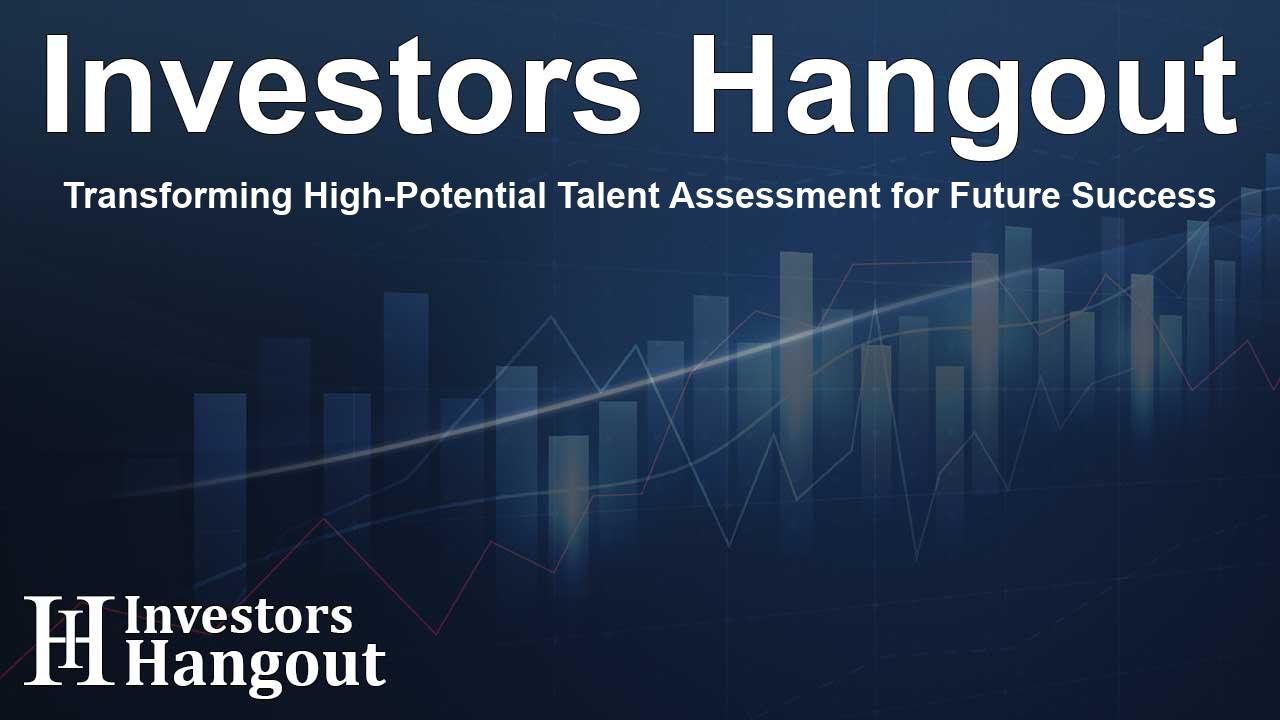Transforming High-Potential Talent Assessment for Future Success

Evaluating High-Potential Talent: A Call for Change
Organizations today face challenges in effectively assessing high-potential talent. Recent findings reveal a substantial reliance on subjective evaluation methods, raising concerns about bias and inconsistency. To elevate the identification process, companies must consider structured assessment methods that provide a more accurate picture of their top talent.
The Subjectivity Crisis in Talent Assessment
Research shows that an overwhelming majority of HR professionals, about 91%, and 88% of leaders resort to subjective performance ratings when evaluating potential leaders. This over-reliance on manager recommendations and personal judgments leads to discrepancies and possibly overlooking exceptional talent.
The Effectiveness of Existing Programs
While HR and organizational leaders rate the effectiveness of their talent identification programs—79% and 72%, respectively—this self-assessment often falls short. The findings indicate that success is frequently measured only by tracking promotions rather than linking high-potential initiatives to tangible business outcomes.
The Importance of Structured Methods
Despite the popularity of such subjective measures, a mere 45% of HR departments and just 30% of leaders utilize psychometric assessments, a more structured and reliable method to identify future leaders. Implementing more rigorous assessment methods can significantly enhance the identification of high-potential employees.
Identifying High-Potential Employees
Interestingly, over 50% of high-potential employees noted that being recognized has strengthened their dedication to the organization, with 67% indicating that this acknowledgment has influenced their career ambitions. This connection highlights the critical role of HiPo programs in enhancing employee retention rates.
Addressing Development Gaps in HiPo Programs
While it is evident that being recognized as a high-potential employee can lead to increased commitment, organizations risk losing this benefit if development opportunities are not consistently provided. The study highlights that while mentoring and coaching are widely available, other crucial development tools, like cross-functional training and job shadowing, are underutilized. An astonishing 83% of HR professionals reported mentoring as the primary development method, while only 38% noted e-learning as a significant tool.
Implementing Structured Development Programs
To truly capture the motivational lift that comes with being labeled a high-potential employee, companies must abandon informal practices in favor of structured, scientifically backed development tools. This approach fosters fairer identification processes and targeted development opportunities, ensuring that top talent receives the support necessary for growth.
Strategic Planning for Future Talent Needs
As businesses navigate a rapidly changing environment characterized by evolving skill requirements and heightened role complexity, building effective high-potential talent programs becomes increasingly vital. Russell Becker, CEO at Talogy, emphasizes that these programs are essential for organizations striving to adapt and prepare their workforce for future demands.
Conducting Thorough Research on HiPo Programs
The research conducted utilized three comprehensive methods: a rapid evidence assessment of existing scientific literature, surveys directed towards international HR professionals and leaders, along with high-potential employees across various industries, and focus groups comprised of Talogy experts specializing in identifying high-potential talent.
Refining the HiPo Program Conditions
By gathering insights from multiple stakeholders—HR professionals, organizational leaders, and high-potential employees—the research confirms a well-rounded understanding of current high-potential programs and their effectiveness. Moving forward, it is essential for organizations to implement engaging, impactful development strategies and fair assessment practices.
Frequently Asked Questions
What are the main findings of the recent research on high-potential talent assessment?
The research indicates a significant gap between organizations' commitment to high-potential programs and their reliance on subjective identification methods, highlighting a need for more structured approaches.
Why is subjective evaluation of talent a concern?
Relying heavily on subjective methods can lead to bias and may overlook truly exceptional talent, ultimately affecting organizational success.
How can organizations enhance their high-potential talent programs?
Organizations can improve their HiPo programs by integrating structured and scientifically validated assessment methods alongside meaningful development opportunities.
What impact do high-potential programs have on employee retention?
HiPo programs positively influence employee retention rates, with most high-potential employees reporting increased commitment to their organizations.
What role does structured training play in developing high-potential employees?
Structured training ensures fair identification and supports targeted development, crucial for maximizing the potential of high-potential talent within organizations.
About The Author
Contact Logan Wright privately here. Or send an email with ATTN: Logan Wright as the subject to contact@investorshangout.com.
About Investors Hangout
Investors Hangout is a leading online stock forum for financial discussion and learning, offering a wide range of free tools and resources. It draws in traders of all levels, who exchange market knowledge, investigate trading tactics, and keep an eye on industry developments in real time. Featuring financial articles, stock message boards, quotes, charts, company profiles, and live news updates. Through cooperative learning and a wealth of informational resources, it helps users from novices creating their first portfolios to experts honing their techniques. Join Investors Hangout today: https://investorshangout.com/
The content of this article is based on factual, publicly available information and does not represent legal, financial, or investment advice. Investors Hangout does not offer financial advice, and the author is not a licensed financial advisor. Consult a qualified advisor before making any financial or investment decisions based on this article. This article should not be considered advice to purchase, sell, or hold any securities or other investments. If any of the material provided here is inaccurate, please contact us for corrections.
